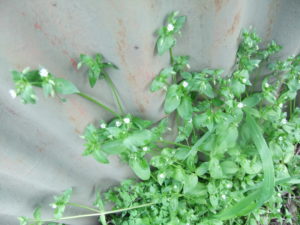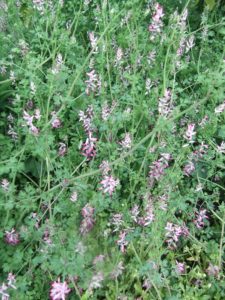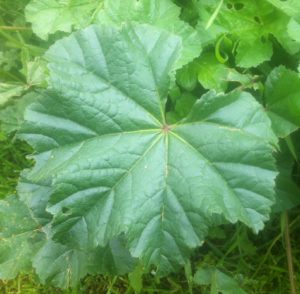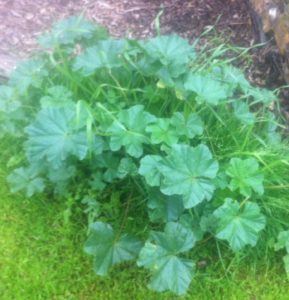 Chickweed (Stellaria Media) is a great addition to salads and sandwiches. While some books say you can cook it, I find that cooking makes it mushy and unappealing. It has a mild taste, which makes it a great replacement for lettuce. It can also be made into a tea using either fresh or dried leaves.
Chickweed (Stellaria Media) is a great addition to salads and sandwiches. While some books say you can cook it, I find that cooking makes it mushy and unappealing. It has a mild taste, which makes it a great replacement for lettuce. It can also be made into a tea using either fresh or dried leaves.
Other names for Chickweed include Adder’s mouth, starwort, stitchwort, tongue grass and winter weed,
It is rich in iron, contains calcium, cobalt, molybdenum, magnesium, manganese, silicon, zinc, vitamin c and has a protein content of 15-20%.
Chickweed has many healing applications including applying the fresh leaves, or an ointment, to bruises, irritations and skin disorders such as eczema or psoriasis. It has also been found to relieve painful joints, tendons and ligaments. It is soothing to the digestive system, easing inflammation and ulceration.
Culpeper states that “the herb bruised or the juice applied with cloths or sponges dipped therein to the region of the liver, and as they dry to have it fresh applied, doth wonderfully temperate the heat of the liver, and is effectual for all imposthumes, and swellings whatsoever, for all redness in the face, wheals, pushes, itch, scabs: the juice either simply used or boiled with hog’s grease applied, helpeth cramps, convulsions, and palsy.”
I’m not quite sure what an “imposthume” is and I think I’ll give the hog’s grease a miss, but I’m currently enjoying eating this almost daily in a salad.



 Chickweed (Stellaria Media) is a great addition to salads and sandwiches. While some books say you can cook it, I find that cooking makes it mushy and unappealing. It has a mild taste, which makes it a great replacement for lettuce. It can also be made into a tea using either fresh or dried leaves.
Chickweed (Stellaria Media) is a great addition to salads and sandwiches. While some books say you can cook it, I find that cooking makes it mushy and unappealing. It has a mild taste, which makes it a great replacement for lettuce. It can also be made into a tea using either fresh or dried leaves.